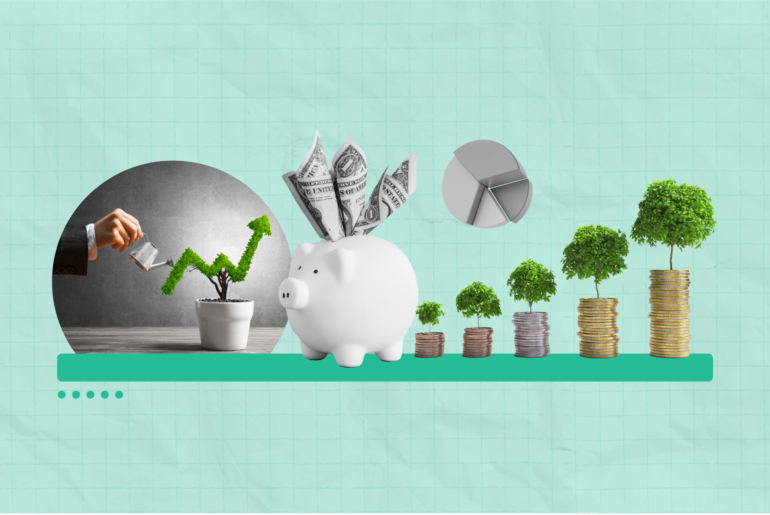Last Updated on Apr 8, 2020 by Aradhana Gotur
There are instances in daily life when you either reap the benefits of acting on time or repent endlessly for being a hopeless procrastinator and living in ignorance. The same applies in case of personal finance, the art and science of managing money at an individual or household level.
The term ‘personal finance’ evokes distinct emotions in folks across all ages. While most young earners are not familiar with the phrase, the mature, middle-aged peeps go frenzy on hearing it and those in their ripe ages simply smirk or have a contented laugh, based on how they have managed their finances.
Cutting to the core, if you aren’t aware of personal finance and why you need to get it right, then you are lagging in the game. You deny your money the myriad opportunities to grow and build into an impressive net worth. Fortunately, if you understand personal finance, you can achieve any milestone you wish to, provided it is realistic and you direct sincere efforts towards it.
So, let us learn what personal finance is, how it affects your financial wellbeing, and what are its key elements.
Table of Contents
What is personal finance?
Personal finance is a vast term that means to manage YOUR earnings, expenses, and investments. Needless to say, personal finance is ‘personal’ and addresses everything, from managing your income and saving for goals to investing your savings and realising them. But what most of you fail to understand is that personal finance is more than just Vitamin M, which you look to accumulate for various reasons. Here’s what personal finance is all about.
Personal finance draws from your intentions, habits, and actions
While most people will tell you that personal finance encompasses management of money, savings, and investments, they fail to touch the vital aspects such as ‘financial awareness’, ‘financial discipline’, and ‘financial habits’. When it comes to personal finance, planning, organising, and implementing are important, but everything boils down to your intentions, habits, and actions.
Getting there? Now picture this.
Illustration 1:
Just last month, you may have received a Diwali bonus (income). Blame it all on the festival (intention), without giving another thought (habit) you may have splurged (action) your bonus on hosting a remarkable celebration, some pair of shiny clothes, an extended after-party, and a hell lot of fireworks (to light up your mood after having spent recklessly, no guilt trip intended).
Consequence: You spend your bonus without thinking twice and are now left with only a fleeting memory of the festival and a question as to what you would gain by investing your bonus.
Now, visualise a slightly different picture (remember the truth is bitter, but it sets you free).
Illustration 2:
Think of what you would achieve had you acted responsibly (intention)? Like, invest a portion of the bonus in gold (now that is festive, ain’t it?), a high-interest fixed deposit or a well-performing stock (action) and spend the rest to enjoy the festival of lights.
Consequence: You manage your income smartly. You not only enjoyed the festival, but also invested a portion of your bonus and gave it a chance to grow.
Did you see the stark differences between both the illustrations: your intentions, behaviour, and the consequences? The key takeaways here are:
- Income and expenses remain constant
- It is up to you whether you save and invest your income
- Your intention and actions make all the difference
Personal finance leads you to financial freedom
Personal finance is not a one-time thing, it is a long journey to attaining financial freedom (goal) so you have the ability to do what you want, without worrying about money. This is only possible when you have adequate wealth, which results from:
- Earning a regular source of income AND
- Owning well-performing investments
Together, these help you achieve your goals on time and without compromise. But wealth creation requires discipline, planning, and implementation. You need to save regularly (discipline), invest in options after careful evaluation (planning) and monitor the performance of your investments to rebalance your portfolio optimally (implementation).
Now that you know the significance of personal finance, read about its key elements and what part they play in your financial life.
Key elements of personal finance
There are 5 key elements of personal finance that work together to help you empower your finances.
Goals
A goal is like an aim that gives you a purpose to save, invest, and grow your money. It can be anything, from saving for a luxury villa to taking a world tour and retiring a millionaire.
Pro tip: Always set realistic goals. Setting an unrealistic goal such as becoming a crorepati in a year when you have just started working can be a disappointment if you can’t achieve it. In contrast, a realistic goal such as retiring a millionaire chiselled in your mind will give you direction and encourage you to go that extra mile to achieve it. Notice the difference?
Income
Income is your earning from various sources such as salary, bonus, business profits, rental income, and returns on investment. This element of personal finance is the monetary resource that enables you to meet various expenses and goals.
Pro tip: There is no limit on how much you can earn. The more you earn, the higher your purchasing power will be and the faster you can reach your goal. That said, besides saving regularly, focusing on making more money takes your finances to the next level. Hustle harder and take up side-gigs, if you have to.
Savings
Savings is a portion of your income that you set aside to meet emergencies and invest to grow your money further. Saving is an integral element of investing and the first step to growing money. The sooner you start saving, the longer time you give your money to grow. This is where the compounding power of money comes into play. So, the best time to save is from early on in your career.
Pro tip: There are two approaches to saving:
- Spend first and save later
- Save first and spend later
Most of the masses take the first approach and end up spending more and saving very little. When you do this, you have little money left to invest, which means you deny your earnings the potential to grow manifold.
The smart ones, on the other hand, save first and spend the rest. This way:
- You first set aside a portion of your income as savings, which leaves you limited funds to spend
- You can invest your savings in suitable options based on your risk appetite and return expectation
One way to save without fail is to embrace automation, which instructs your banker or a mobile application, as you choose, to transfer a portion of your income to your savings and/or investment regularly. This eliminates the consequences of your negligence, procrastination, and forgetfulness, which the enemies of personal finance.
Spending
Spending means letting go of a portion of your income to meet expenses or goals such as rent, fuel, healthcare, food, travel, and taxes. Apart from your income, you can also use credit such as a loan and a credit card to meet expenses. While credit helps leverage your finances, if not managed well, it can land you in a debt trap. The best example of this is a credit card, which carries high-interest charges in case you miss or delay repayment.
Pro tip: The ways to limit your spending are:
- Manage your expenses smartly
- Allow yourself limited access to funds
Investment
This element of personal finance refers to parking your savings in investment options that generate returns. There are several asset classes such as equity, fixed deposit, bonds, real estate, and mutual funds. The returns you earn from such an option can come in handy to meet your goals and high-value expenses.
Pro tip: To reap optimal returns, choose an investment in line with your risk appetite, return expectations, and investment goal.
By now, you must have known the basics of personal finance and its importance to leading a financially independent life. Use this information to act today and make the most of your money!
- Best Performing Index Funds in India (2025) - Jun 5, 2025
- Issue of Shares – Meaning, Types, Examples and Steps - Jun 4, 2025
- Banking Mergers in India – List of Merged PSU Banks, Advantages, and Challenges - Jun 3, 2025





